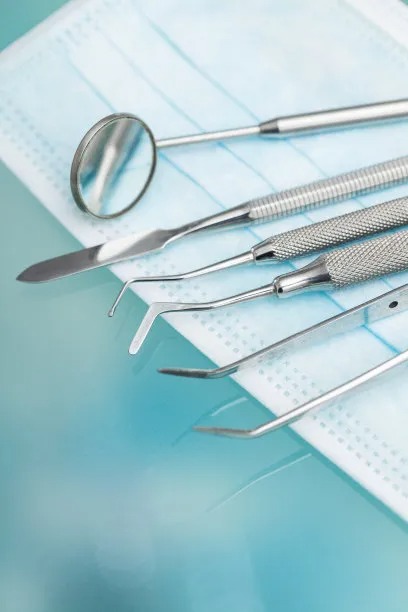Summary: This article explores the essential guidelines and precautions necessary for successful dental implantation and optimal recovery of oral health. Dental implants are a popular solution for restoring missing teeth, and ensuring a smooth procedure and healing process is vital. The discussion includes understanding implant procedures, post-surgery care, dietary recommendations, and the importance of regular dental check-ups. Each aspect is aimed at empowering patients with knowledge and practical advice to promote long-lasting results. By adhering to these guidelines, patients can achieve not only a functional restoration of their smile but also maintain overall oral health.
1. Understanding the Dental Implant Procedure

Dental implants are artificial tooth roots that are surgically placed into the jawbone to support crowns, bridges, or dentures. The first step involves a thorough consultation with a dental professional who will assess the patients oral health and discuss the best approach. This may include imaging studies like X-rays or a CT scan to evaluate bone density and structure.
Once the planning stage is completed, the surgical procedure begins, typically performed under local anesthesia. During this phase, the implant is placed into the jawbone, which acts as a foundation. Following the surgery, a healing period is essential for osseointegration, where the implant fuses with the bone. This process can take several weeks to months, depending on individual circumstances.
Communication between the patient and the dental team is critical throughout this process. Patients should feel comfortable discussing any concerns or questions, including pain management options and expected outcomes. A clear understanding of the procedure timeline helps in setting realistic expectations for recovery.
2. Importance of Post-Surgery Care
Post-surgery care is crucial for a successful recovery following dental implant surgery. Patients are advised to follow specific instructions provided by their dentist or oral surgeon. This typically includes avoiding strenuous activities and maintaining a strict oral hygiene regimen to prevent infection.
Patients should also be vigilant about physical signs of complications, such as excessive swelling, prolonged bleeding, or unusual pain. If any of these symptoms occur, contacting the dental office promptly is essential to address potential issues before they escalate.
Rest is key during the initial recovery phase. Patients may be advised to keep their heads elevated and use ice packs to minimize swelling. Regular follow-up appointments are necessary to monitor the healing process and ensure that the implant is integrating properly with the jawbone.
3. Dietary Recommendations for Recovery
Diet plays a significant role in recovery after dental implant surgery. Immediately following the procedure, patients should adhere to a soft food diet, avoiding hard, chewy, or crunchy foods that can stress the implant site. Ideal choices include smoothies, yogurt, mashed potatoes, and soups that provide necessary nutrients without risking damage to healing tissues.
As recovery progresses, patients can gradually reintroduce regular foods while still observing caution around the implant site. Staying hydrated and maintaining a balanced diet rich in vitamins and minerals can promote faster healing and overall health. Foods high in calcium and vitamin D, such as dairy products and leafy greens, are particularly beneficial.
Avoiding certain types of food during recovery is equally important. Patients should steer clear of alcohol, which can interfere with healing, as well as smoking, as it increases complication risks. Keeping these dietary recommendations in mind will support a smoother recovery process and enhance the results of the dental implants.
4. Commitment to Regular Dental Check-Ups
Once dental implants are in place and the initial recovery phase is complete, maintaining oral health is essential for the longevity of the implants. Regular dental check-ups allow dental professionals to monitor the status of the implants and surrounding tissues, ensuring everything is functioning as intended.
Professional cleanings and examinations can help identify early signs of any potential issues, such as gum disease or implant failure, which can be addressed promptly. Patients should follow a regular schedule for visits, typically recommended every six months, or as advised by their dentist.
In addition to professional care, patients should be proactive in their home care routines. Brushing twice daily, using dental floss, and incorporating antimicrobial mouthwash can help keep the mouth healthy and free from plaque buildup. Educating oneself about proper oral hygiene practices plays a vital role in sustaining the health of not only implants but also natural teeth.
Summary:
In conclusion, successful dental implantation hinges on comprehensive understanding and adherence to guidelines throughout the entire process—from initial consultation to post-operative care and beyond. Patients must prioritize oral health and regular check-ups to ensure the longevity of their restorative outcomes.
By following these essential steps, individuals can achieve a successful recovery, resulting in restored confidence and improved quality of life. This article is compiled by Vickong Dental and the content is for reference only.
Vickong Dental
Vickong Dental is a large medical group established in Hong Kong in 2008 by professors from well-known medical universities in Guangdong and Hong Kong, as well as medical doctors from key national '985' universities (including Master's supervisors and senior professors). The chain of branches brings together expert dentists with PhDs and Master's degrees from Hong Kong and Mainland China, committed to providing high-quality dental treatment.
"Vickong Dental Practices the University Motto of 'Healing and Serving Society,' with a Stable Operation for Sixteen Years. It Has Been honored with Hong Kong Enterprise Leaders's Choice,' and is a Global Trusted Implant Center for the Nobel Implant System. Recommended by Hong Kong Metro Broadcast and Guangdong Television, it Serves Customers from Over Thirty Countries and Regions, Gaining the Trust and Favor of Citizens from the Guangdong-Hong Kong-Macau Greater Bay Area and Surrounding Cities.

Thousands of customers' unanimous praise
The most recognized and highly recommended dental service by customers in the Guangdong-Hong Kong-Macau Greater Bay Area
We Ensure You Receive Detailed Care and Attention Here
Hong Kong standards, Shenzhen prices, Your Trusted English-speaking dentists

Vickong Dental Medical-Grade Instrument Disinfection Process
Vickong Dental Medical-Grade Instrument Disinfection Process

Vickong Dental Chain: A Warm and Comfortable Environment for Treatment






Appointment Hours

Q&A
Why choose Vickong Dental?
Vickong Dental practices the university motto 「Medicine to Benefit Society」, with each branch bringing together highly qualified dentists with doctoral and master’s degrees from Hong Kong and the Mainland, and has maintained seventeen years of steady operation。Recipient of 「2024 Hong Kong Enterprise Leaders Brand」, 「2025 Hong Kong Enterprise Leaders Brand」, a Nobel Biocare Global Trusted Implant Center, and a brand recommended by Metro Radio Hong Kong and Guangdong TV。
To date, we have served customers from more than thirty countries and regions,earning exceptionally high word-of-mouth recognition and trusted recommendations from residents across the Guangdong-Hong Kong-Macao Greater Bay Area and surrounding cities
We have eight major branches in Zhuhai、Shenzhen,and a consultation and service assurance center in Hong Kong,so you can book a free consultation at any time for any questions,which is very reassuring.
If I do not accept the quotation after the CT scan, will I be charged??
No! As long as the actual treatment has not started, you will not be charged any fees.
Will there be any additional charges during the treatment process?
No, there won’t be any additional charges. Before treatment begins, we will clearly explain the treatment plan and its corresponding fees. Only after the patient agrees and signs the consent form will we proceed with the dental service.
Can I pay in Hong Kong dollars?
Yes. Vickong Dental accepts payment in Hong Kong dollars. The amount will be converted based on the exchange rate of the day, and the applicable rate will be clearly communicated to you in advance.
Can I reschedule my appointment at any time?
Yes. Please contact us via **WeChat** or **WhatsApp** as early as possible, providing your original appointment time and details, along with your preferred new date and time slot for rescheduling.













